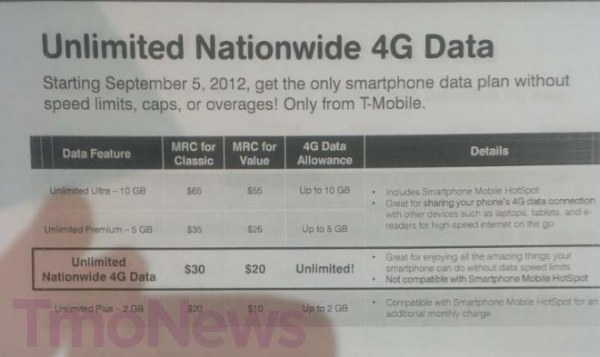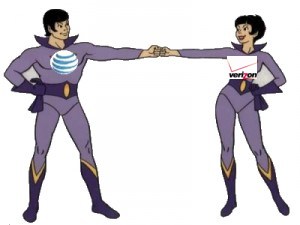Sprint CEO Dan Hesse probably rues the day his Board of Directors pulled the plug on a merger deal that would have combined MetroPCS and Sprint back in February. The merger was abandoned after board members openly worried the transaction would distract Sprint from its network improvement project — dubbed Network Vision — then just getting underway.
The deal with T-Mobile and MetroPCS may have limited Sprint’s takeover options, although analysts say a hostile counteroffer for MetroPCS could still take the small carrier away from T-Mobile.
Hesse himself is a proponent of additional wireless industry consolidation. He believes the current market has too many wireless carriers and the two dominant providers — AT&T and Verizon — enjoy economy of scale Sprint cannot hope to achieve in its current position.
Wall Street was more pessimistic about Sprint after the T-Mobile/MetroPCS merger was announced, suggesting they may be an industry orphan, pushed into a corner and running out of options.
Shares of Leap Wireless, the owner of Cricket, rose as much as 17 percent after the T-Mobile deal was announced, signaling Cricket is likely an endangered species. Leap’s cellular network is similar in scope to MetroPCS, although the two companies largely serve different markets. Wall Street’s favorite dance card has Sprint and Leap Wireless as future partners, and Sprint may be forced to acquire the smaller carrier to save face. Leap operates its own modest network of cell towers and has plans to roll out LTE 4G service to its customers. That spectrum could become important to Sprint, especially in the larger urban areas Cricket targets.
Some Wall Street analysts say deals with MetroPCS, Leap, and other small regional carriers are small potatoes. Many advocate for a much larger merger between Sprint and T-Mobile to more realistically confront the de-facto duopoly of AT&T and Verizon Wireless.
Regulators under the Obama Administration may take a dim view of a merger that combines the third and fourth largest nationwide carriers, but nobody expects much regulatory resistance approving mergers that wipe out MetroPCS and Cricket.
“The problems that Sprint and T-Mobile have are they are not as big as AT&T and Verizon,” Piper Jaffray’s Chris Larsen told Bloomberg News in a phone interview. “They don’t have the scale so therefore it is harder to compete. Increasing your size 25 percent, it helps. But when you are less than half as big as your rival, getting 25 percent bigger narrows the gap, but it does not close the gap.”
[flv]http://www.phillipdampier.com/video/CNBC MetroPCS Down on Merger Reports 10-3-12.flv[/flv]
CNBC reports the T-Mobile/MetroPCS deal reignites wireless consolidation and leaves Sprint in a potentially difficult position. (5 minutes)
[flv width=”640″ height=”380″]http://www.phillipdampier.com/video/Bloomberg Sprint Left Behind as MetroPCS Joins T-Mobile 10-3-12.flv[/flv]
Bloomberg News reports T-Mobile needs more subscribers, but some Wall Street analysts think the company is making a mistake focusing on the prepaid market. (1 minute)


 Subscribe
Subscribe






